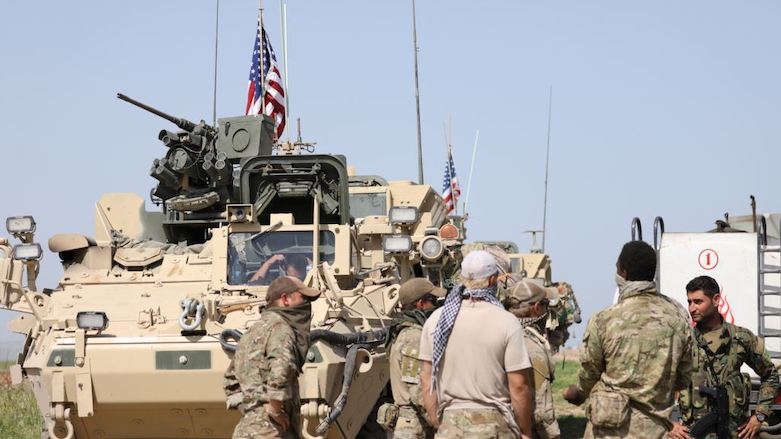US seeking international partners for Syrian security zone

WASHINGTON DC (Kurdistan 24) – The US is seeking international partners to maintain a security zone in northern Syria, after US troops withdraw from the area.
A Wall Street Journal report on Thursday revealed how Washington plans to reconcile two seemingly contradictory aspects of its policy toward Syria: one is to withdraw US forces from the country, while the other is to ensure the protection of Kurds there, after they leave.
Indeed, that second aspect of US policy encompasses an even greater issue: how to ensure the continued stability of eastern Syria overall, including the protection of all Syrians living in the area, as well ensure that the Islamic State does not reemerge.
The administration’s ideas for what should follow the withdrawal of US forces, again, raise the prospect of creating a situation in Syria, akin to that of Iraq, following the 1991 Gulf War.
For Kurds, as well as others living in Syria east of the Euphrates River, that offers promising prospect for a future free of dictatorial control by a despised Baathist regime.
For Ankara, as well as Damascus, however, such a prospect is infuriating. Yet the Syrian regime is an avowed US enemy, while the latest assessment of the US intelligence community predicts deteriorating relations with Turkey.
The 2019 Worldwide Threat Assessment, as presented on Tuesday to the Senate Select Committee on Intelligence by Director of National Intelligence Dan Coats, warned, “Turkey’s regional ambitions, a distrust of the United States, and the growing authoritarianism of Turkey’s leaders are complicating bilateral relations and making Ankara more willing to challenge US regional goals.”
As the Journal reported, “The US wants to assemble a coalition of Western nations to create and potentially enforce a new buffer zone in northern Syria.”
It “hopes to persuade allies, including the UK, France and Australia to take responsibility for northern Syria,” it continued, “to address Turkish concerns about Kurdish separatists in Syria while keeping Turkey’s forces away from US-backed Syrian Kurdish fighters who have been battling Islamic State.”
Turkey originally proposed a buffer zone along its southern border during the Obama years. Ankara’s view was that its forces and allied militias would enforce the zone, and the Obama administration rejected it.
Such a prospect alarms Kurds and Arabs, as well as Christians and other religious minorities living in eastern Syria.
The US Congress is also strongly committed to protecting America’s allies in Syria, who bore the brunt of the battle—and the casualties—in the fight against the Islamic State in Syria.
As part of the plan described by the Journal, the US would continue to provide support to the international forces in Syria, in the form of intelligence, surveillance, and reconnaissance (ISR), capabilities.
Reportedly, US officials had earlier also suggested imposing a no-fly zone in eastern Syria, akin to that established in Iraq in the 1990s.
Both France and Britain have troops in eastern Syria, as part of the US-led coalition. Earlier this month, French President Emmanuel Macron affirmed that his country’s troop presence in Syria, as well as Iraq, would continue.
The Journal, however, claimed that no US ally has yet agreed to the proposal.
Secretary of State Mike Pompeo will host a conference next week in Washington of the Foreign Ministers of the international coalition against the Islamic State, and US discussions with prospective partners will continue then.
Ilham Ahmed, co-president of the SDC, has been in Washington this week to discuss the future of the SDF-controlled areas of Syria. Last week, she was in Moscow—the most obvious alternative to Western protection.
On Monday, as Ahmed was dining with Congressional leaders at the Trump International Hotel, the US president stopped by the table and chatted for ten minutes.
“I love the Kurds,” Trump told Ahmed, as he assured her that they “are not going to be killed” by Turkish forces.
